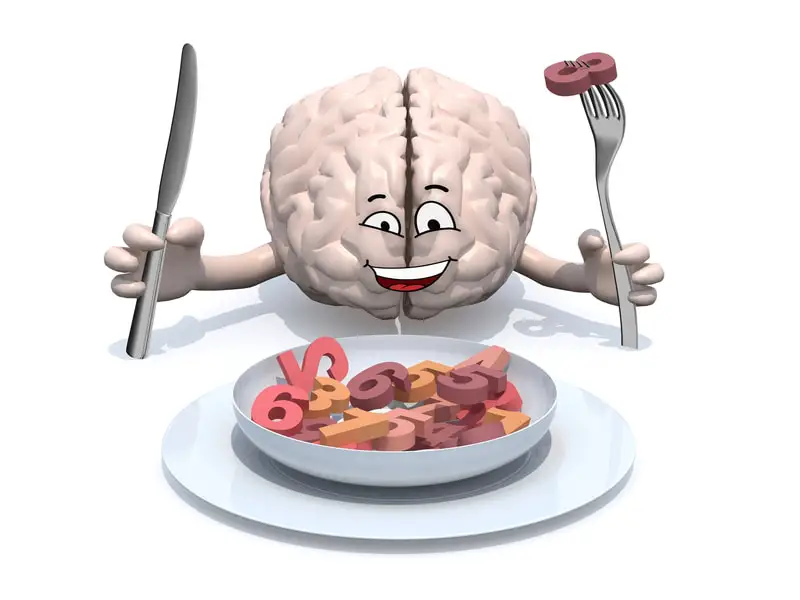Today we are going to prove that whilst math can help you in many aspects of everyday life, maths is also really important for your health; both physically and mentally.
Do you worry you do not have strong math skills? Maybe you’re better at writing? Do you face the necessity to learn math, but you don’t feel confident? Take heart, and help your brain and health at the same time.

All in all, 5 health benefits of being good at math are the following:
1. Math is exercise for the Brain
Mathematics, especially mental arithmetic, it is known to significantly boost the capacity of the brain.[1] The study of shapes, numbers, and patterns encourages one to develop solid observational skills and boosts critical thinking.
Professional mathematicians tend to train their cerebral function. This, in turn, provides them with an opportunity to keep their brain energized, healthy, and in a perfect working condition.
How does this help your brain health?
Let’s take a look at an example of a physical workout. Any person who has exercised regularly knows very well that in order to make the body stronger, you need put it under a certain tension, beyond you comfort zone.
The human brain is much the same. When you’re dealing with math issues, the various brain functions get active at the same time. More neural connections develop to cope.
The more math problems you solve, the more your brain develops to cope with more difficult problems. So maths is exercise for the brain.
2. Math is used in Drug Treatments
While many people still believe that math has no real use in life, it actually helps us understand how our organism functions and how our body responds to medical treatments.
In order to deal with such systemic diseases like hypertension or diabetes, doctors must calculate how long a drug will last in the body, and how much is required for effective treatment. A 70lb young female may not need as much medication as 160lb male athlete.
Patients also have to be able to determine how long the injections or pills will last before they need to visit the pharmacy.
On a more technical level, when developing new drugs, extensive mathematical modeling is used before conducting trials on animals or people.
Math can help to predict the likelihood of side effects from different combinations of medications and to identify the intervals of this a treatment program. This, in turn, enables doctors and their patients to select the safest and most effective scenario.
In the final analysis, mathematical calculations are used to reduce the total cost of treatment and speed up patients’ recovery.
3. Is Math A Key to Preventing Alzheimer’s Disease
More and more research is showing that people who use their brains are less likely to develop Alzheimer’s disease and dementia. [2][3]
Many studies show that cognitively challenging
tasks such as learning
a 2nd (or more) languages help develop protective effects. Learning mathematics beyond your current
understanding over a prolonged period would also engage the brain similarly. The key is to move outside your comfort zone
and really exercise the brain.
Even more recent studies suggest that the ‘brain
training’ programs which use a lot of maths at speed, do have a protective
effect through developing the plasticity
of the brain.
Steven E. Arnold, a Translational Neurology Head of the Interdisciplinary Brain Center at Massachusetts General Hospital and Harvard Medical School, insists on the importance of full funding of early years math education.[3]
So it would seem highly recommended to improve skills like math, even if you didn’t study math as a child.
This will not only take you outside your comfort zone but will challenge your brain and help keep it active, hopefully reducing this irreversible brain disorder.
4. Math Helps Women’s cycles
Tracking and calculating their menstrual cycle helps women understand what is normal and what isn’t. Following natural body cycles predicts what changes their bodies experience including ovulation.
Irregularities that happen within the menstrual cycle don’t usually don’t signal any serious health issues. However, the ability to do the simple calculations may help a lady figure out if there’s a potential pregnancy or other change that needs medical attention for best health.
Understanding simple cycles, an aspect of math, will help notice a missed period and detect menstrual bleeding that is not within the norm.
5. Math Helps You Cook
You’re not going to believe it, but math skills are essential in cooking and managing a good diet for optimum health.
From dividing a cake into fractions to for a childs birthday party to making partial receipes, addition, subtraction, fractions and multiplication all help you in the kitchen.
Suppose you need to make a recipe that feeds 3 people, feed 4? You need to increase the ingredients by 1/3rd – or multiply by 1.333.
Need to feed 7 children equal pieces of cake? By cutting the cake into 1/8th (first in half, then half again, and finally, each quarter into halves) you have 8 even pieces leaving one for you! Congratulations, you’ve just managed fractions.
Math also helps people on special health diets to manage chronic conditions such as diabetes, or cardiovascular disease (high blood pressure).
In many cases, people living with these health issues need to keep track of what they eat. If they don’t calculate calories and the other food elements precisely, the consequences can vary from hazardous to lethal.
Using Maths to work out the correct amount of food and medication ensurs sufferers remain within the limits of their prescribed meal plan.
In summary, while many people tend to believe that you are either good or bad at mathematics, maths is necessary for good health.
With practise, everybody can boost their skills in mathematics.
So strange as it might seem at first, developing your mathematics skills will help your brain and you enjoy good health for longer.
[1] https://www.theguardian.com/education/2001/aug/28/schools.highereducation
[2] https://www.researchgate.net/post/If_learning_a_natural_language_delays_dementia_might_learning_advanced_mathematics_a_formal_language_have_a_comparable_benefit
[3] https://www.usatoday.com/story/news/nation/2013/07/20/preventing-alzheimers-disease/2554843/